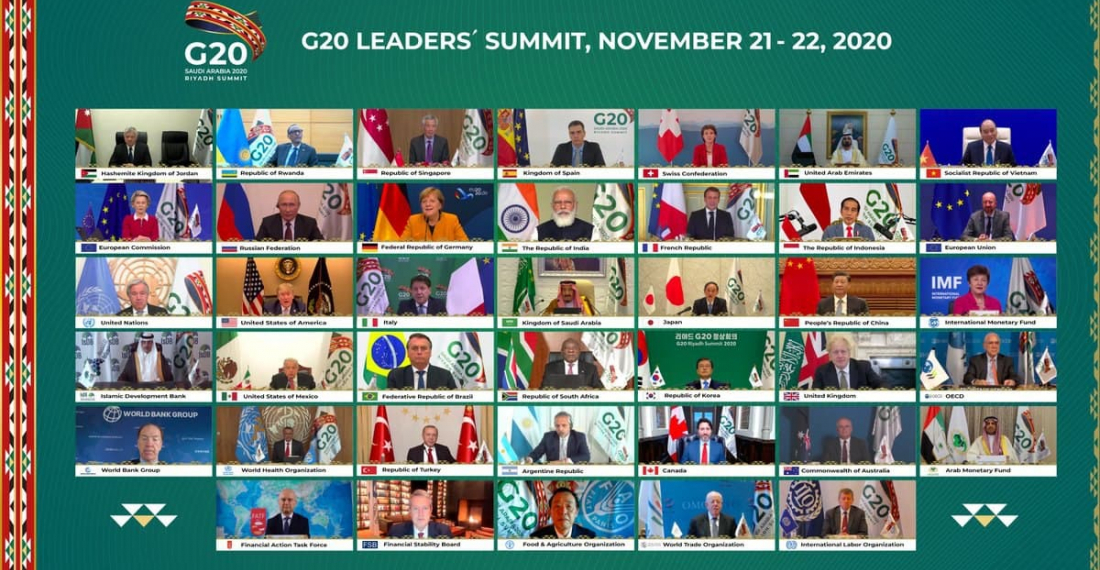The summit of the G20 countries, hosted by Saudi Arabia, is this year being organised virtually because of the coronavirus pandemic. And the pandemic also dominates the summit discussion and its economic consequences..
Saudi King, Salman bin Abdul Azizi addressing the opening of the summit said that the 20 largest global economies had contributed $ 21 billion to confronting COVID-19 and “took extraordinary measures to support our economies by injecting over $11 trillion to support individuals and businesses.”
G20 countries should provide support to developing countries to maintain development progress, the king said.
The role of women and youth in society and the labor market must be strengthened, he added.
King Salman added that G20 countries must lead the international community in conserving and protecting the environment, combating land degradation and preserving coral reefs.
He added that G20 countries have adopted the Riyadh Initiative on the Future of the WTO which aims to make the multilateral trading system more capable of facing any challenges.
Economies and borders must be reopened to facilitate the movement of trade and people, the king said.
source: commonspace.eu with agencies
photo: Virtual family photo of the G20 summit hosted by Saudi Arabia on 21 November 2020 (picture courtesy of the twitter feed of the Saudi Foreign Ministry.







